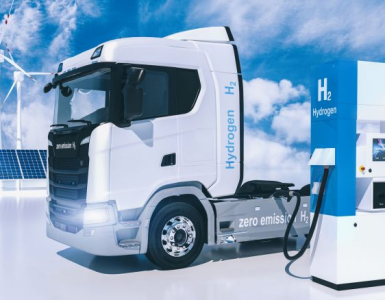East Anglia has a “real opportunity to be a major producer, user and exporter of hydrogen”, according to MP for Waveney, Peter Aldous.
Aldous was among those speaking at a Westminster Hall debate on the future hydrogen economy, held on 14 June.
Opening proceedings, Redcar MP and Chair of the APPG on Hydrogen, Jacob Young, who also secured the debate, spoke on how to get to a stage where 20-35% of UK energy consumption is hydrogen based by 2050, a range of “vital steps” must be taken to recognise its potential.
This includes ensuring the UK has the right regulatory regime to support a future hydrogen economy, while Young also called for changes to the gas safety management regulations to allow hydrogen to be blended within the gas network up to 20%; for government to mandate the rollout of hydrogen-ready boilers as early as possible; and to green light both the Redcar and Ellesmere hydrogen village projects, noting “we do not want a hydrogen village; we want a hydrogen UK.”
🔥 What about we co-host a webinar? Let's educate, captivate, and convert the hydrogen economy!
Hydrogen Central is the global go-to online magazine for the hydrogen economy, we can help you host impactful webinars that become a global reference on your topic and are an evergreen source of leads. Click here to request more details
Aldous was then among those to speak and drew on how while he has understood the government’s rationale for a cluster approach to the promotion of a hydrogen economy, the regulatory framework must be flexible enough to allow decentralised areas, such as the East of England, to realise their full potential.
East Anglia in particular, according to Aldous, has a real opportunity to be a major producer, user and exporter of hydrogen, with the region’s abundance of resources, onshore and offshore infrastructure that can be readily retrofitted, and developers eager to participate. It does, however, require the right policies to be in place.
Aldous also pledged to share Hydrogen East’s proposal and proposed next steps for developing a clean hydrogen cluster in the East of England.
Aldous went on to highlight some of the projects that have been initiated in the region, as well as outline bigger opportunities at a design stage which would have a national, and even international impact.
These include the Freeport East project, which could see the early adoption of hydrogen for portside related operation and other local uses in Felixstowe and Harwich; the Lowestoft PowerPark project, which could see hydrogen used to power municipal buses and the refuse fleet, while also seeing the development of flexible generation; and the Bacton energy hub project.
Furthermore, these schemes are paving the way for larger projects, including developing electrolysis capacity in conjunction with nuclear energy and heat to support the proposed Sizewell C development.
Aldous also noted Cadent and National Grid’s Capital hydrogen project, set to be launched in the autumn, which will produce hydrogen in East Anglia to serve homes and businesses both in the region and in London There are five points in the East of England that have been identified where hydrogen could be injected near immediately to jumpstart the move towards the 20% hydrogen blend to be used in the existing gas network, without having to change appliances or adjust the network.
Aldous stressed the need for government to change the regulations to allow hydrogen into the network.
Summing up, Aldous emphasised that East Anglia does not want a hydrogen economy where it adopts second-generation or third-generation technologies and assets from other areas. Instead, the region wants to “maximise our own potential and build our very own bespoke network”.
What is needed now is a framework that can incentivise small-scale projects to be developed, continued Aldous, in the knowledge that they can be scaled up in due course.
READ the latest news shaping the hydrogen market at Hydrogen Central
Aldous makes case for East Anglia as a major hydrogen producer, June 20, 2022








